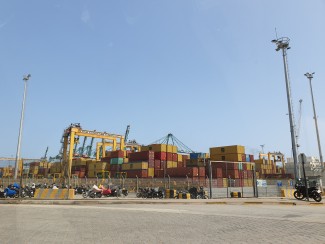Women are 14 times more likely to die from a climate disaster than men. That finding, by UN Women, reflects growing acknowledgment that the adverse effects of natural disasters affect marginalized groups, including women and children, more disproportionally.
It is easy to see why: women are poorer because they earn less, have less-secure jobs, and are more dependent on the natural resources which climate change threatens the most, according to a report by Care, an international charity. Similarly, the World Bank notes that micro, small and medium enterprises, in which many women work, are less able to bear the costs of climate change than larger firms.
Despite being face-to-face with the problem, women are often not part of the solution. The UN’s Gender Action Plan notes that sustainable development can only be achieved if women are involved in developing and implementing all aspects of climate change mitigation and adaptation. This requires making women’s economic empowerment a central pillar in climate policy and action.
For instance, trade-driven growth is vital to eliminating extreme poverty but can increase the emissions that cause global warming. One pathway to sustainable development is to ensure that this growth is low-carbon and climate-resilient. Enhancing the place of women in trade allows them to play a key role in addressing climate change while raising their incomes and driving overall growth.
Women are part of the solution
Some examples are illustrative. In Mali, West Africa, 370,500 people, eighty percent of them women, live off the production of gum arabic from acacia trees. With support from partners, the Government of Mali is supporting the planting 10,000 hectares of acacia trees. This will increase the earnings of the women involved, while building the “Great Green Wall of Africa” to help combat climate change.
In northern Uganda, a two-year project run by the East African Women in Business Platform has, since August 2020, worked with 7,400 women entrepreneurs in the shea butter trade. By supporting them to form cooperatives, improve the quality of their product and linking them to markets, the project is improving the women’s incomes while planting or preserving shea trees amidst ongoing illegal shea tree burning for charcoal.
Elsewhere, in Lesotho, greenhouses are making vegetable production more sustainable, as is the use of vegetable dyes for leather tanning in Chad. In Zambia, beekeepers are using safer modern methods that encourage women to participate; in Comoros, there is a focus on sustainable tourism while mango packaging in Burkina Faso is using sustainable packaging and cleaner solar power.
These are some of the engagements by the Enhanced Integrated Framework’s Empower Women, Power Trade initiative, which identifies and helps address some of the key constraints for women to engage in global trade. The lessons from the field examples above show the value of directing more climate finance to support women’s organisations.
Smarter trade for aid
These initiatives also show the need to consider the effects of climate change while designing aid-for-trade programs. Climate change considerations should feature more prominently within trade support programs, alongside the focus on expanding productive capacities in Least Developed Countries.
Designing aid-for-trade programs that focus on expanding gender-empowering productive capacity and are at the same time climate-sensitive will reduce poverty, minimise harm to the environment, and make development more sustainable.
The climate crisis has brought into sharp focus the important work that needs to be done today in order to have a more sustainable tomorrow. The experiences detailed above show that understanding and promoting gender equality will improve our chances of success in raising incomes on the back of sustainable production and smarter, more efficient trade.
As the world celebrates International Women’s Day, we need to put women at the frontline of working for a sustainable tomorrow by empowering them to act as change agents, and by investing more in policies and programs that work for them.
This will require better quality of data to assess whether what is being done works, provide greater accountability, direct climate finance to support women’s organisations already working on climate mitigation and adaptation, including in rural areas.
If we work together and apply the lessons learned, we will create opportunities to increase prosperity without damaging the planet for tomorrow’s generations. It is not just about ensuring that women are not 14 times more likely to die from natural disasters; we can build a world where everyone – women, men, and children – are protected from the adverse effects of climate change.
If you would like to reuse any material published here, please let us know by sending an email to EIF Communications: eifcommunications@wto.org.


